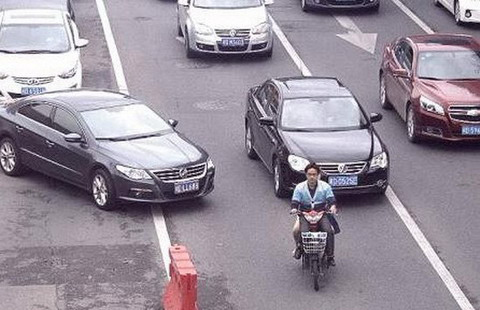Car banning policy dubious
By Xin Zhiming (chinadaily.com.cn) Updated: 2014-11-27 11:11Beijing has seen rare blue skies during the APEC meetings, but that is not simply a result of car use restrictions. Rather, it is the result of a comprehensive policy package that involves not only a car ban in Beijing, but that in surrounding cities and, more importantly, a seven-day holiday for people in Beijing and some places in Hebei and temporary closure of factories in Hebei and regions as far as in Shandong province.
If those measures cannot become fixed (actually it is not feasible, at least for now), then it will become uncertain to what a degree the car ban policy will help clean the air.
Actually, Beijing suffered from severe smog in the days before the opening of the APEC summit, partly because of the front loading of production in some sectors as factories pre-empted the closure order ahead of the summit. It shows that industrial production in surrounding areas is a major contributor to Beijing’s air pollution and simply banning cars may not be the real solution.
Traffic contributes to about 30 percent of air pollution in Beijing, according to various studies. Therefore, banning cars will play a role in reducing pollution in the city, but the effect will be limited if industrial production, which is mainly fueled by coal, continues to produce pollution as it does now.
The local policymakers need to study well the pros and cons of the policy and seriously solicit public opinion before implementing it.











